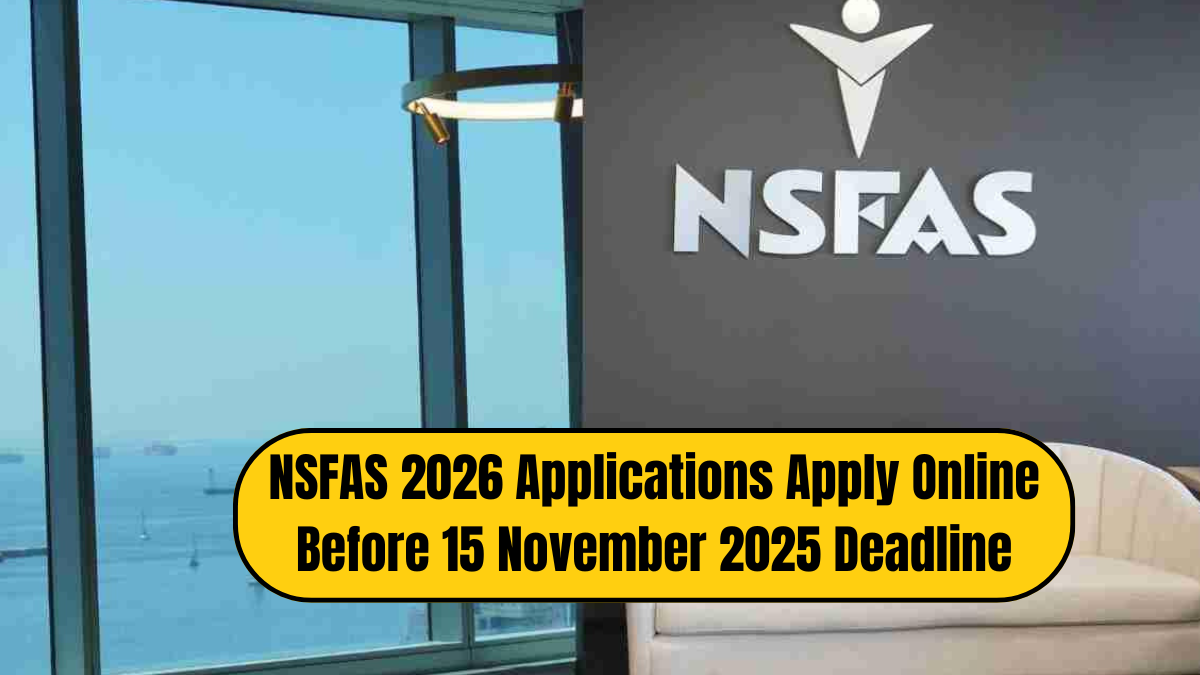The applications for NSFAS funding for the academic year 2026 will soon open. For any South African who could just be a financial possibility for higher education, at least in spirit, is in the lower income category. NSFAS pays for tuition, learning accommodations, and living costs-an opportunity to turn a dream into reality. The application portal is open presently, but the clock needs to be on your side, as applications close on 15 November 2025. Do not let this chance slip through the net-it is just that step in front of a brighter prospect.
Getting Into the NSFAS Bidding Bus
Being implemented in terms of the National Student Financial Aid Scheme Act, the NSFAS awards bursaries and loans to eligible students undertaking undergraduate or postgraduate studies at public universities or TVET colleges. Bursaries cover full cost of studying, including registration fee, tuition, books, food, and, if applicable, accommodation where students stay in residence. Should they be above just a smidge outside the relevant income threshold, then NSFAS Student Loan awaits them.Providing for such, the NSFAS inclusivity policy focuses on students with disabilities and SASSA grant recipients in 2026 so that no gifted person shall be denied opportunity for development because of prevailing financial constraints.
Who Can Apply? Eligibility
Eligibility is quite simple but depends on demand and income, that is, need. The NSFAS bursary candidate must be a South African resident or permanent resident with a combined household income below R350,000 per annum; this figure went up to R600,000 in respect of applicants with disabilities. If applicants are recipients of SASSA grants, they are deemed to be automatically eligible as far as income is concerned, and hence an applicant will never be asked for proof of this. However, the Student Loan will only be considered for tensile households with income between R350,001 and R600,000 per annum (R600,000 for applicants with disabilities). Applications for qualifications that are not DHET or SAQA-approved will not be entertained. These will consider applications of freshers and even grandparents who are freshers provided their academic standing is intact.
Steps of applying
The process of applying for NSFAS is almost entirely online and user-friendly. Among other things, one has to visit the NSFAS website first (www.nsfas.org.za) and create a myNSFAS profile by entering the email address and the ID number of that individual. Later, when the user has registered, he can log in to complete the online form that holds applicants’ data such as their personal information, income information, and study choices. Follow the prompts to upload your supporting documents, and click submit. Following submission, one needs to diligently monitor their NSFAS status as it goes through different stages from Application Submitted until it is either Approved or Rejected. Should there still be missing documents, upload them immediately, or any further processing would be delayed. The entire process takes 30-45 minutes; make sure to give true information.
Why Apply? The Perks
There is another way to think about this: NSFAS ensures that each student develops holistically, with rates demonstrating that an NSFAS-sponsored student duly passes his or her graduation and is ready for career practice. The scheme must be the enabler in leveling away educational opportunities in a country that still splits its classrooms into two; thereby selecting the skilled work-force for tomorrow’s South Africa.
also read: [South Africa Public Sector Salary Increase 2025 – Pay Raise Percentage And Timeline Confirmed
